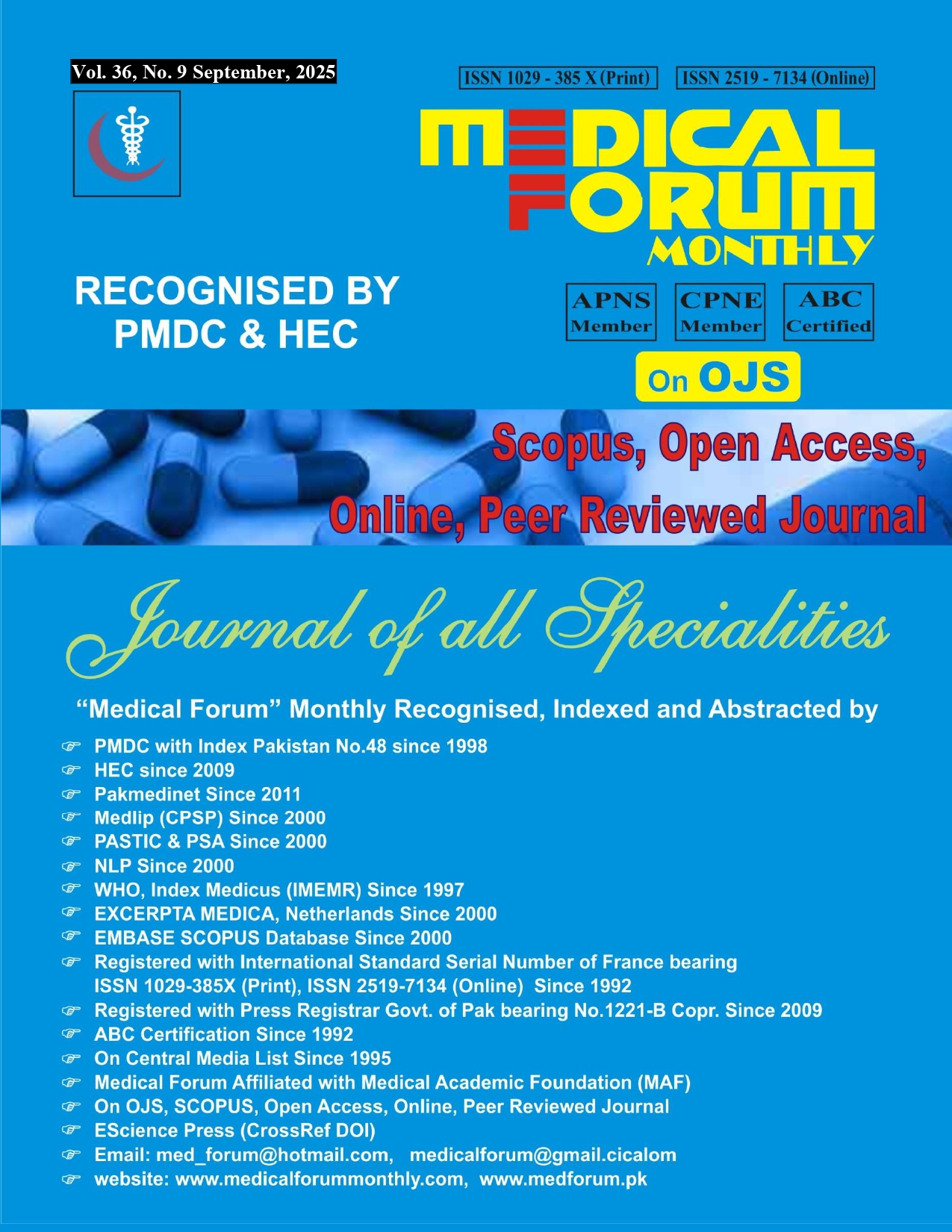Impact of Central Obesity on the Clinical and Biochemical Profile of Metabolic Dysfunction-Associated Steatotic Liver Disease (MASLD)
DOI:
https://doi.org/10.60110/medforum.360905Keywords:
Central obesity, Metabolic dysfunction-associated steatotic liver disease, Liver fibrosis, C-reactive protein, Homeostatic model assessment for insulin resistance, Fibro ScanAbstract
Objective: To assess the association between central obesity (waist-to height ratio >0.5) and liver fibrosis, steatosis, and inflammatory biomarkers in metabolic dysfunction-associated steatotic liver disease patients.
Study Design: A case-control study
Place and Duration of Study: This study was conducted at the Department of Medicine, College of Medicine, AL- Iraqia of University, Iraq from 15th March 2024 to 30th May 2025.
Methods: A case-control study was conducted on 120 adults diagnosed with metabolic dysfunction-associated steatotic liver disease in Baghdad. Participants were divided into centrally obese (n=60) and non-obese (n=60)
groups. Clinical and biochemical parameters including liver enzymes (alanine aminotransferase, aspartate aminotransferase), C-reactive protein, homeostatic model assessment for insulin resistance and Fibro scan-based fibrosis staging were compared.
Results: Centrally obese patients showed significantly elevated alanine aminotransferase (49.7 vs. 33.1 U/L, p<0.001), C-reactive protein (19.9 vs. 9.7 mg/L, p<0.001), and homeostatic model assessment for insulin resistance (5.93 vs. 3.39, p<0.001). Fibrosis grades ≥F2 and steatosis stages ≥ S2 were significantly more frequent among the obese group (p<0.01).
Conclusion: Central obesity is significantly associated with worsened liver fibrosis and metabolic derangement in metabolic dysfunction-associated steatotic liver disease patients. These findings support the utility of waist to hip ratio as a clinical screening tool in metabolic dysfunction-associated steatotic liver disease management.
































 This work is licensed under a
This work is licensed under a 